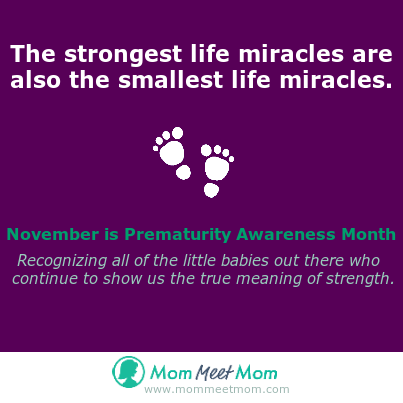What is Prematurity?
A full-term pregnancy lasts between 37 and 42 weeks, and "prematurity describes when a baby is born earlier than 37 weeks (gestational time). Prematurely born infants face many special issues, which can include breathing difficulties, feeding difficulties, and low birth weight. Prematurely born babies generally have a longer hospital stay than babies born full-term, and many end up spending time in NICU units (neonatal intensive care) or special care nurseries until it can be established that they are stable and healthy enough to be brought home. This can be a very difficult time for many families.
There are some risk factors for having a premature birth, such as the mother's general health and lifestyle choices, and carrying multiple babies (twins or triplets), but for many mothers who deliver a premature baby, it is unexpected, with no discernible cause or identifiable risk factors- mothers under excellent prenatal care, who do everything "right can still end up delivering their baby prematurely. If you are pregnant, it is a good idea to learn the warning signs of pre-term labor, which include cramping, regularly times contractions, and backache, and discuss pre-term labor risks and planning with your care provider. If you do believe you are experiencing pre-term labor signs, it is critical to seek medical attention right away, because there are steps that can be taken to manage, delay, or prevent a baby from being born prematurely.
Thanks to advances in modern healthcare, the prognosis for most babies born prematurely has improved dramatically. Statistically, the earlier a baby is born, the more serious his or her health problems are likely to be.




























